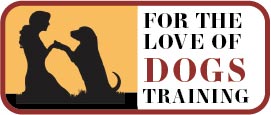
Image courtesy of tiverylucky at FreeDigitalPhotos.net.
A large percentage of the dogs we see in our practice are overweight as determined by the body condition score method. This scores dogs 1 thru 9. 9 being morbidly obese and 1 being emaciated. Visit Purina for resources and images regarding this scale.
Health Risks of Dog Obesity
- Orthopedic problems such as ACL ruptures, Osteoarthritis, Intervertebral Disc Rupture and Herniation (the “slipped disc”) and Hip Dysplasia.
- Glandular or Endocrine disease such as Diabetes mellitus (sugar diabetes), Hypothyroidism (low thyroid) and Hyperadrenocorticism (Cushing’s Disease).
- Fat storage and fat metabolism disorders.
- Diseases affecting the alimentary canal such as oral and dental disease and pancreatitis.
- Urinary tract diseases including urinary tract infections, infections of the skin near the urinary tract, certain bladder stones, certain bladder cancers, kidney diseases and obstetric complications.
- Cardiovascular problems such as an increased demand on the heart which may impair cardiac function, hypertension (high blood pressure) and even certain types of serious blood clots.
- Respiratory system problems such as Collapsing Trachea, reduced lung capacity and an increased burden on the muscles of respiration.
- Skin problems can arise. Most notably are the folds that excessive fat can produce and these in turn can lead to chronic and possibly serious infections.
- Cancer. Obesity may increase the risk of several types of cancer (this does not seem to be consistent finding with all studies) and as mentioned before, certain types of bladder cancer.
- Anesthetic risk.
- A reduction in heat tolerance.
- Low life-expectancy. Probably the starkest risk was uncovered by an aging study, which determined that overweight dogs lived on average 2.5 years less than dogs that were of ideal or lean body condition. The scary part is that even dogs that were just a little overweight (over by about 15% or more) also statistically lived shorter lives. This study was focused on dogs only and any extrapolation for human beings would first warrant further study.
How You Can Keep Your Dog Fit
- Give your dog proper and appropriate nutrition and feeding.
- Provide daily exercise appropriate for the individual dog and human.
- Foster a healthy human-animal bond that is not solely founded on food.
by Dr. Thomas L.H. Tsui
North Plains Vet Clinic
